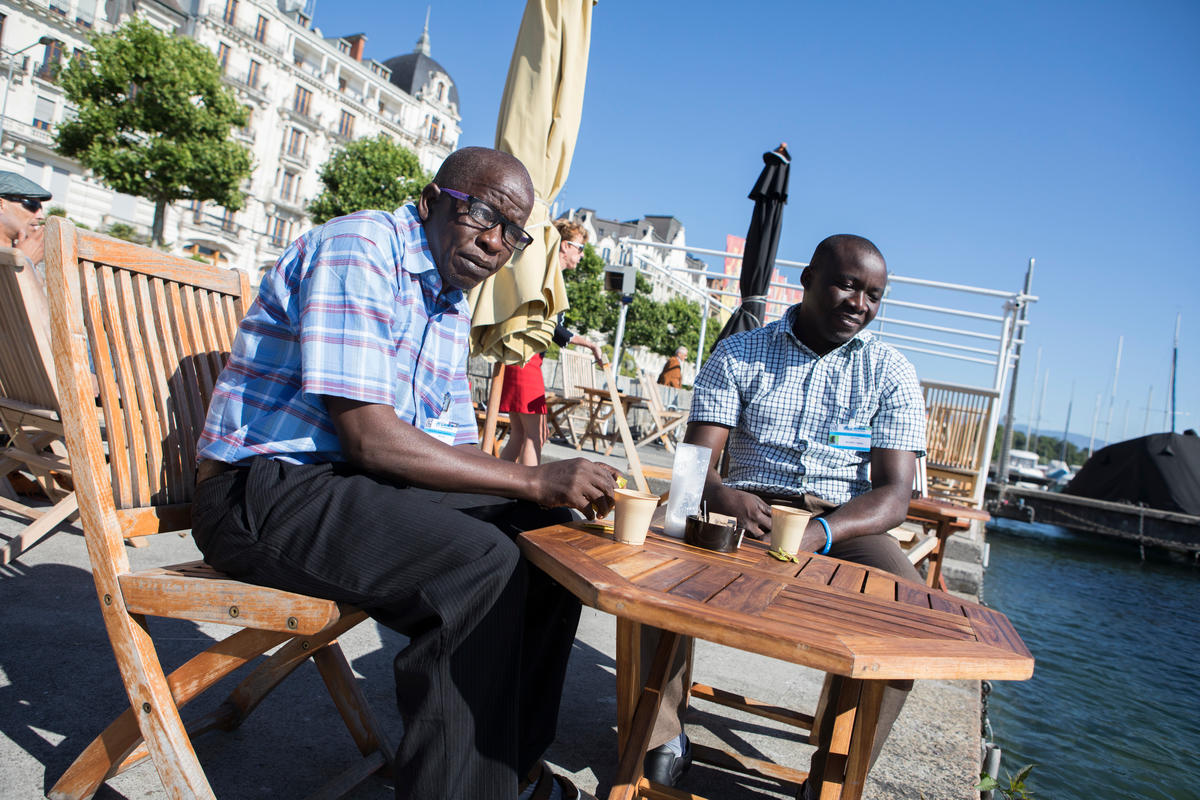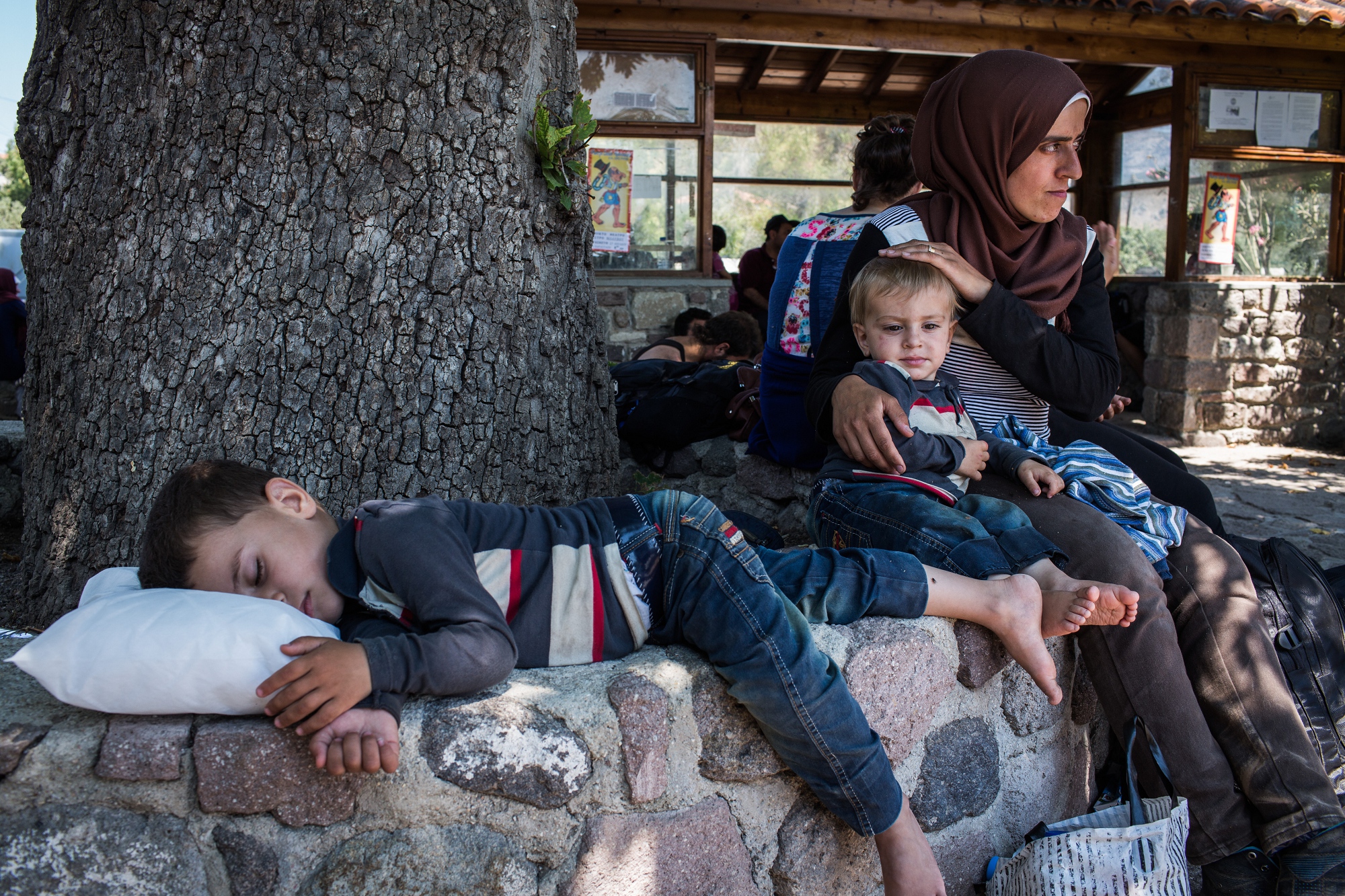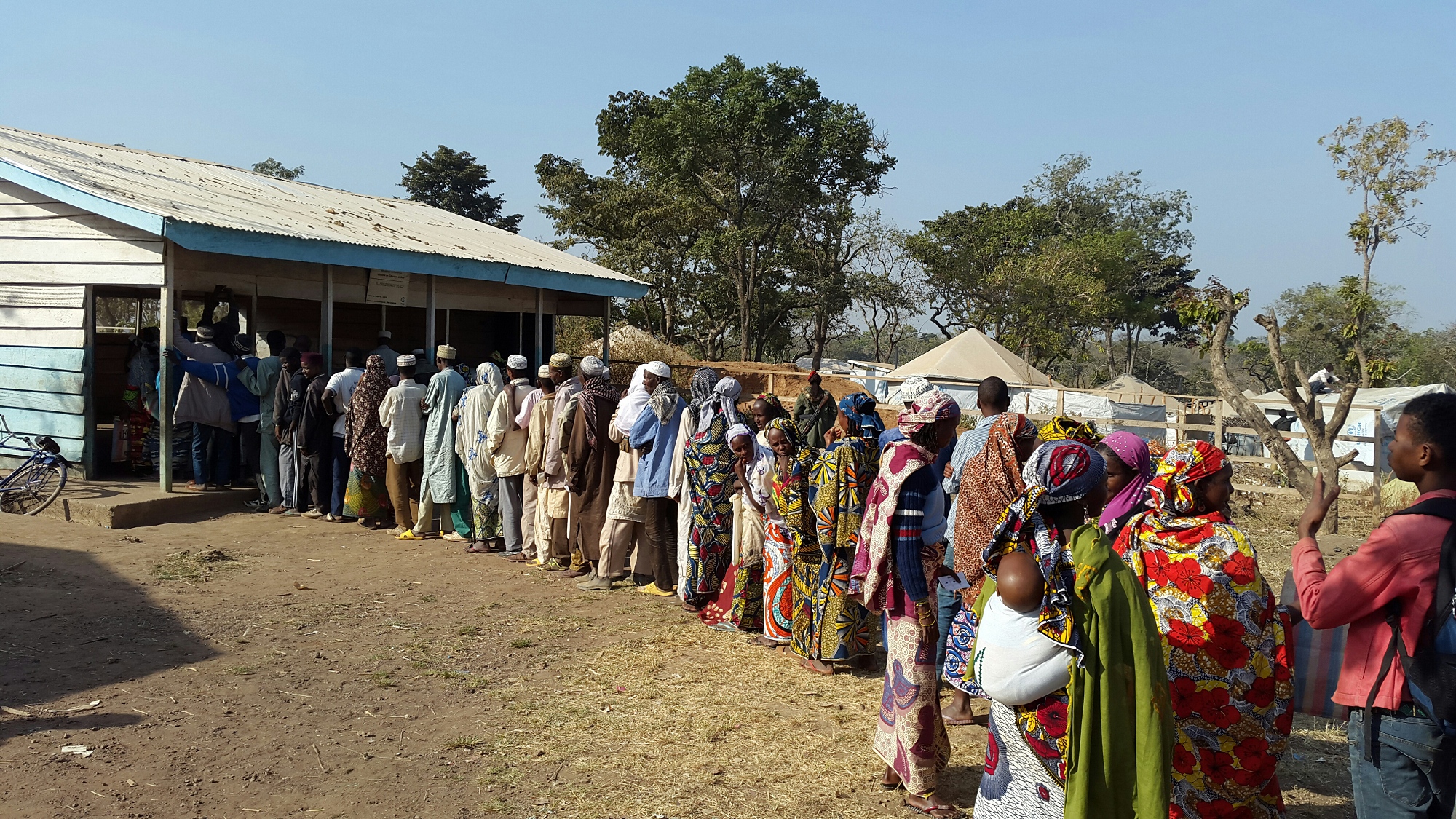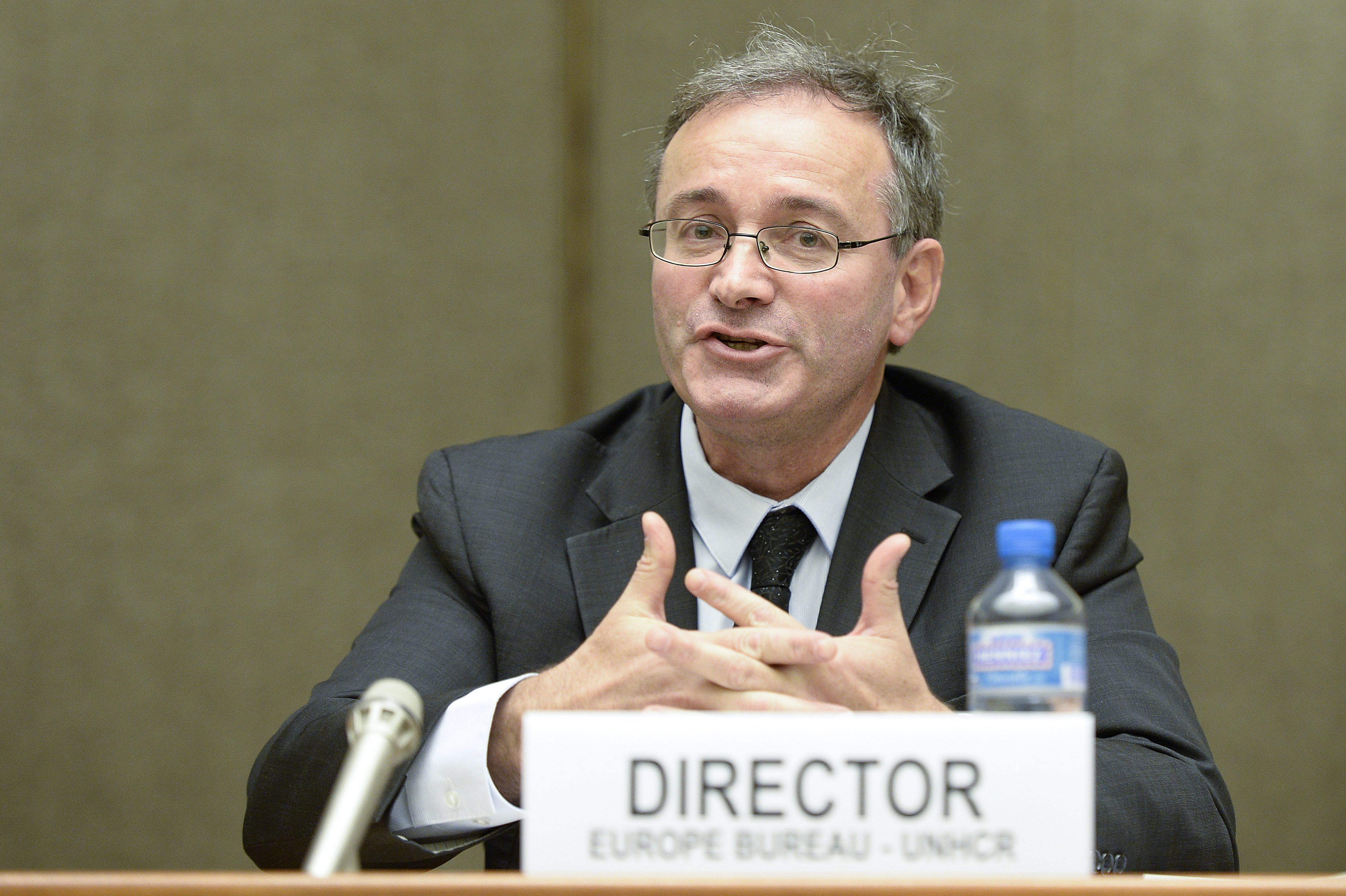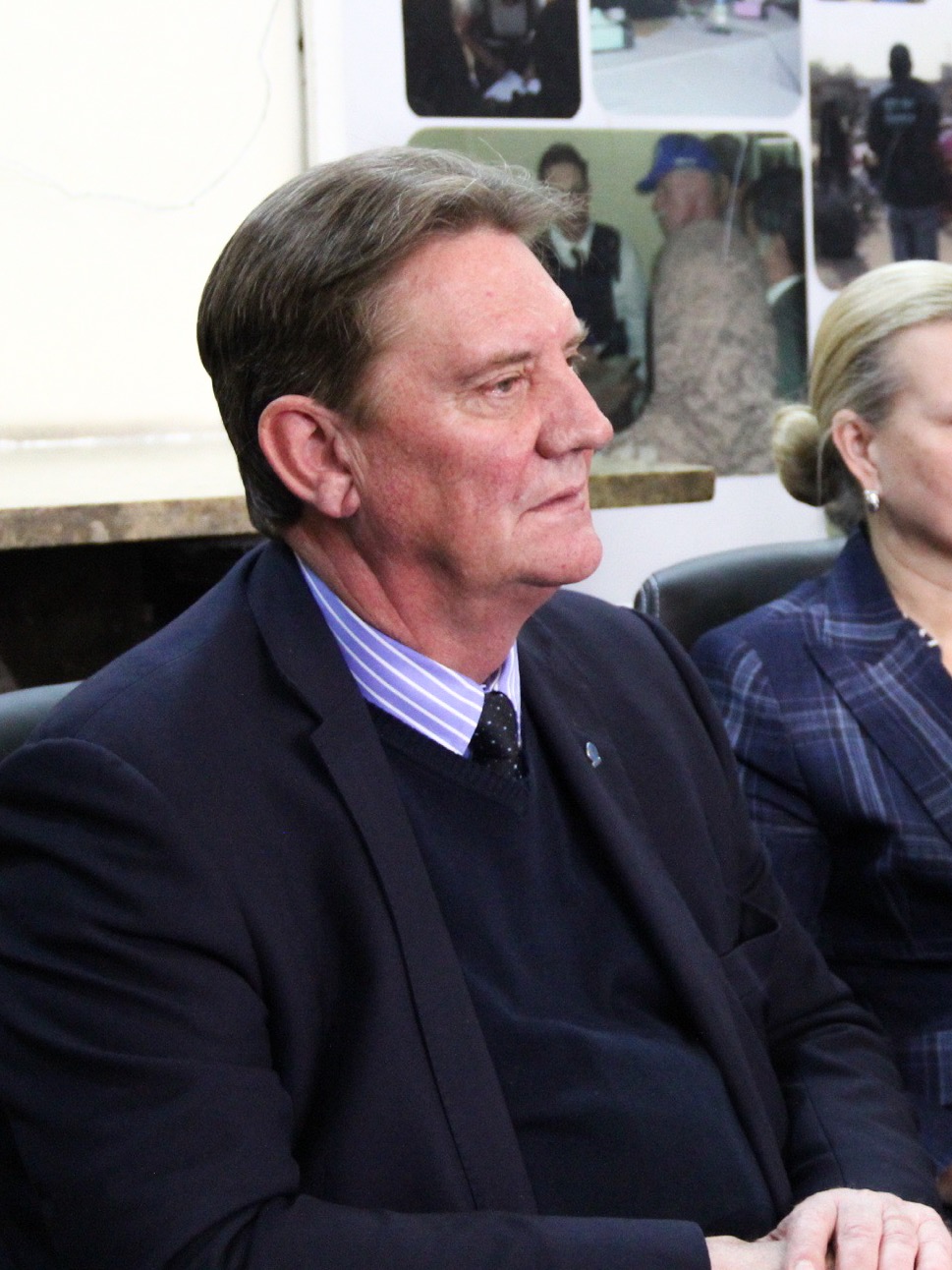Q&A: UN Volunteer helps needy Libyan Berbers in Tunisian camp
Q&A: UN Volunteer helps needy Libyan Berbers in Tunisian camp

REMADA CAMP, Tunisia, May 23 (UNHCR) - Patricia Eckhoff was born in Ecuador of mixed parentage, but the 33-year-old was brought up in Germany. After finishing her studies in Germany, she returned to the land of her birth to help the needy and ended up joining UNHCR as a national staff member. She worked with Colombian refugees in the northern province of Imbabura before heading to Madrid to study for a Masters degree in Latin American studies. Eckhoff then joined the UN Volunteers and was assigned to work with the UN refugee agency in the northern Colombian port and coastal resort of Baranquilla. She was asked to join the UNHCR emergency team in Tunisia earlier this year and now works as a proetction assistant in Remada camp, helping ethnic Berbers who have fled fighting in Libya's Western Mountains. Eckhoff talked recently about her work with Senior External Relations Officer Hélène Caux. Excerpts from the interview.
Tell us about Remada camp
It opened on April 11th and I arrived there on May 5th. It is currently hosting more than 700 Libyan refugees, mostly women and children. They are ethnic Berbers and come from either Nalhut or Zintan, two small cities close to the Tunisian border which have been under government attack for several weeks.
Men have driven their wives, children and old folks to the Dehiba border crossing before returning to defend their homes. While many of the Libyans were able to find Tunisian families to host them, others had nowhere to go and ended up in the camp. It is the first time I have worked in a refugee camp.
What do you do in the camp?
I am officially a field protection officer, which means doing everything! My main task has been to register the families in the camp so that we can identify the most vulnerable cases, plan for aid distributions and arrange educational activities for the children. I visited every tent with colleagues from a Tunisian aid organization and from Norwegian Church Aid to register people and ask them about their health, hygiene conditions in the camp, their date of arrival, special needs and so on. I'm proud to say that we completed the registration in three days ¬- it was non-stop work.
The registration enabled us to meet all the refugees in the camp and to explain how UNHCR works in Tunisia. Now we can monitor the most vulnerable and refer special medical cases to hospitals in Remada and in Tataouine, a bigger town further north. It is also essential for planning purposes.
What else did you learn through the registration exercise?
I now know the location of people with medical problems such as diabetes, high blood pressure and heart problems. I also know where handicapped children are living and those who have developed skin diseases - I refer them to the medical clinic in the camp. While registering people, I've also been able to check if they need new tents. There was a sandstorm recently and many tents were seriously damaged and UNHCR has replaced them with sturdier ones.
What did you learn from talking to the refugees?
Most are very traumatized by the war in their country. Several families managed to leave Nalhut and Zintan before government forces started to bomb. Those who left later mentioned their deep fear of being hit by missiles. Many women said they fled because they feared being raped. A female doctor from Nalhut said several missiles hit the hospital. She and her sisters made their way to Tunisia but their father refused to leave Nalhut. "I don't want to finish my life as a refugee, I will die in Nalhut," he told her.
Because the phone network is not working between Tunisia and Libya, the refugees lack news from their husbands or brothers who have remained in Nalhut and Zintan. Not knowing if their loved ones are safe leaves them in a state of constant anxiety.
What are the main problems you have encountered in the camp?
The refugees get bored spending their days doing nothing. The children, especially, are becoming more and more hyperactive and aggressive. Several mothers told me that their children are playing role games, with some being the rebels while others act as government troops. We are trying to increase creative activities for them in the camp and arrange school classes. Refugees in the camp need to have a productive daily routine.
What specific challenges do women and girls face in the camp?
One of the main issues is a medical one. We have 13 pregnant women in the camp and no gynaecologist. If they face complications during the pregnancy or birth - such as a caesarean - there is no appropriate equipment or surgeon in Remada to assist them. The hospital in Remada is already overcrowded since the Libyans staying with host families also go there for consultations.
Another issue in the camps is cultural. For instance, two women in their 40s have been ostracized because they don't have children. Both are suffering immensely. If they try to express their feelings publically, they are mocked and have to put up with comments such as: "What do you know? You are not a woman, you don 't even have children." We are trying to link up the two women so that they can break this wall of silence.
You work with two young local Tunisian women. How has that been?
They are from Remada, a very conservative town. I feel they are going through culture shock working with UNHCR. During the training they attended, we talked to them about things like gender equality, sexual and gender-based violence, problems that can occur during pregnancy and at birth, human rights. All these concepts are completely new to them . . . and it was a challenge for them at first to promote these ideas that they were not familiar with.
At the same time, they have been an asset for UNHCR in Remada because of their cultural awareness, their kind approach to vulnerable cases. They are the bridge that connects UNHCR with the Libyan refugees. I feel that we are lucky to work together and to learn from them as well as them learning from us. They are my entrée to the refugees because they can communicate in Arabic with them. Sometimes the refugees speak in Berber - when they don't want my staff to know what they are talking about!
What motivates you to do this job?
I believe that if I work hard, I can make a difference. I don't mind working 12, 14 hours a day, I feel that if I give 110 per cent of myself to the refugees, I can improve their lives. Sometimes, people just need to talk . . . They appreciate the community approach we are trying to put in place and I appreciate that they let me enter into a part of their world. Because I am in the camp every day and because I love my job, I have established close links with them.
What, or who, has moved you most in Remada?
A father and his eight-year-old son. The boy has been handicapped since birth; he cannot talk, he cannot walk, his eyesight is very poor and he lies all day long on a mattress in a tent . . . When I went to see the family, I was surprised to see the father singing a song to his sick boy. Usually, women are the ones involved with the handicapped children. While the father was singing and taking him in his arms, the boy was laughing. The mother told me that their son does not recognize a lot of people, but he knows his father is there near him when he sings. I was touched by this beautiful interaction between father and son.
What will you do next?
I would like to spend time in another refugee camp, maybe in Africa, and I'd also like to work with urban refugees. They are the invisible refugees; sometimes they face more difficulties than those living in a camp.

